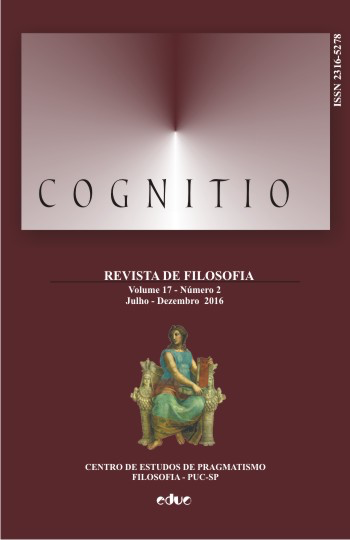Cognoscibilidade, o fim da investigação e esperança epistêmica: Delineamento para uma resposta peirciana ao paradoxo de Fitch
Palavras-chave:
Fitch, Peirce, Cognoscibilidade, Paradoxo, Fim da inquirição, Ceticismo, EsperançaResumo
O paradoxo de Fitch determina a alegação que se todas as verdades são cognoscíveis, então, todas as verdades são conhecidas. A epistemologia pragmatista de Peirce está comprometida com a alegação antecedente e, assim, envolve o consequente não intuitivo, uma conclusão que pode ser considerada como uma objeção decisiva contra a epistemologia de Peirce. Neste artigo argumento que, ao modificar a explicação finitista da investigação para uma explicação infinitista, aspectos-chave de sua epistemologia podem ser resgatados dessa objeção, inclusive a teoria epistêmica de verdade de Peirce, seu falibilismo anticético, seu antifundacionalismo e sua dependência na esperança epistêmica.Métricas
Carregando Métricas ...
Downloads
Publicado
2017-02-04
Como Citar
Dabay, T. (2017). Cognoscibilidade, o fim da investigação e esperança epistêmica: Delineamento para uma resposta peirciana ao paradoxo de Fitch. Cognitio: Revista De Filosofia, 17(2), 237–252. Recuperado de https://revistas.pucsp.br/index.php/cognitiofilosofia/article/view/31233
Edição
Seção
Artigos Cognitio









